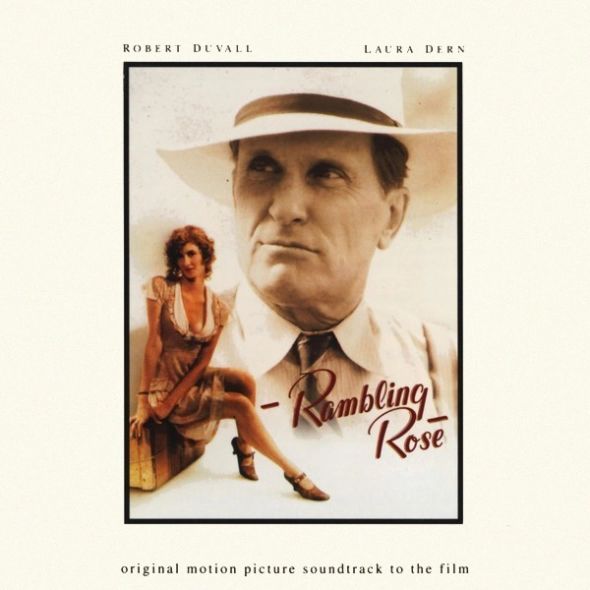Rambling Rose

Label: Virgin Records
Catalogue No: 2-91717
Release Date: 1991
Total Duration: 45:21
UPN: 0-7567-91717-2-6
While critics raved about this film, I was disappointed by the dramatic contrivances of what was essentially character study. True, the acting was uniformly brilliant, but why did reviewers love it so much? I suspect Elmer Bernstein’s score a had a lot to do with it. The atmosphere, nostalgic sense, and even the acting were all elevated by the extraordinary score that graced this picture. As in vintage Hollywood films, the music was featured prominently in the soundtrack, taking on a role as strong as any character.
Scored primarily for woodwinds, gentle strings, harp and subdued horns, the score is lyrical, playful and wistful. Bernstein’s main theme is one of his loveliest, and even on disc it retains its impact after repeated listening. Though the first few tracks on the CD emphasize this melody, RAMBLING ROSE is by no means a mono-thematic work. There are jazzy touches, but they are unlike Bernstein’s more boisterous cues of the 1950’s and 1960’s. While jauntily energetic, they seldom stray far from the warm emotional core that is at the heart of the character of Rose.
Whenever Bernstein writes in a chamber mode, his work is bound to be compared to 1962’s TO KILL A MOCKINGBIRD. This score does not reach that level of greatness, few works by any composer do. But this is easily one of the finest achievements of his distinguished career. Highlights of the score are many, but “Rose and Buddy” and “Goodbyes” perfectly capture a mixture of joy and sadness, much in the manner of the extraordinary Boo Radley revelation scene at the end of TO KILL A MOCKINGBIRD.
Two cues of Louis Armstrong playing “Dixie” were inappropriate in the film, and were unfortunately included on this compact disc. First used to highlight Rose’s visit to town, it pulled you out of the film by not meshing with the rest of the score, and used as end title music, it practically destroyed the emotional payoff. The music has the same effect on disc, breaking the album’s intimate flow. Whether it was the director’s or composer’s decision, it wasn’t a good one. Also included is one of those forgettable songs you don’t even recall hearing during the movie.
Bernstein has undergone much typecasting in his career. Let’s just hope he continues to be typecast as composer of mature, adult pictures (DA, MY LEFT FOOT, THE FIELD). This wonderful music will probably be passed over at Oscar time, but in my mind it’s the best score of the year.
David N. Schecter – Originally published in Soundtrack Magazine Vol.11 / No.41 / 1992



